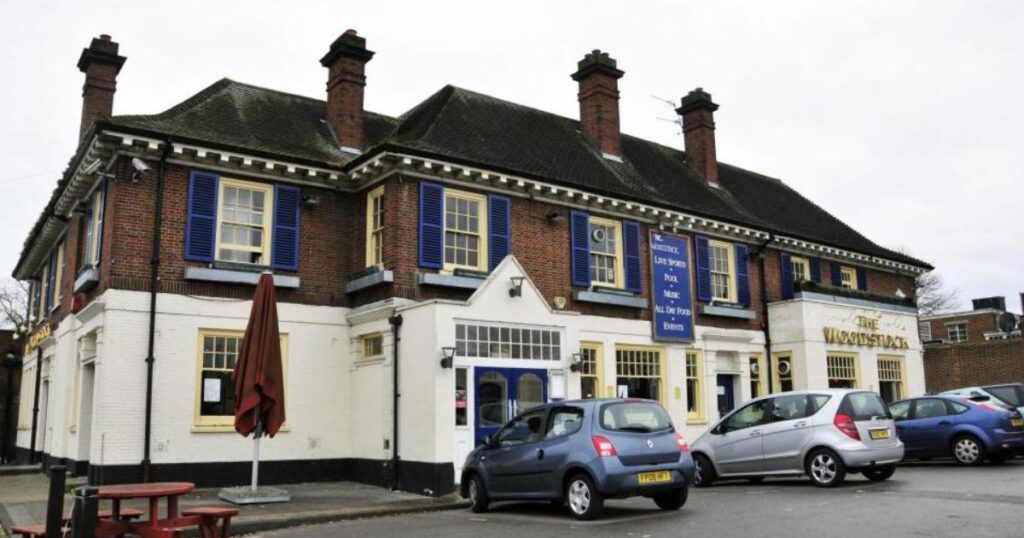The Woodstock stood at 1 Stonecot Hill and served generations of residents before it was demolished in 2015.
Opened in 1936 by the Brentford Brewery, the Woodstock was built on the site of a manor house bearing the same name.
The brewery repurposed the decorative tiles from the manor house, incorporating them into the ‘Victoriana Lounge’ – a feature that made the pub stand out as a spacious establishment in the 1930s roadhouse style.
However, it’s the Woodstock’s musical legacy that resonates most with history.
By the 1960s, the pub became a hotspot for live performances, and on October 5, 1962, it played host to one of the Rolling Stones’ earliest gigs, just months after the band’s formation.
The Woodstock continued to host live music for many years, with performances into the 2000s, leaving lasting memories for its regular visitors.
However, in 2014, Asda applied for permission to build a mini supermarket on the site.
Despite local opposition, Sutton Council granted planning permission, and the pub was demolished in 2015.
The story of the Woodstock is now featured in London’s Lost Pubs (£20 Pen and Sword), a newly released book by author Sam Cullen.
The book documents over 200 pubs that have disappeared from London in the past 25 years, drawing on decades of reviews, guides, and memories to bring their histories to life.
Cullen said: “As much as it’s sad that these pubs don’t exist anymore, I wanted to make sure they are not lost to time by telling their stories, their history, and some of the quirky characters who drank in them.
“Pubs can tell you so much about social and cultural history.
“The book is a celebration of pubs that existed as a vehicle for looking at aspects of London life.
“My criteria for inclusion were that they closed within the past twenty-five years, and there was an interesting story to tell.”
Although the Woodstock is no longer standing, its legacy endures in the memories of those who experienced it, and now, in the pages of Cullen’s book.




